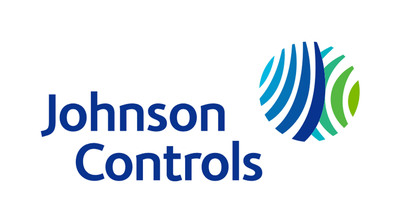Johnson Controls Shows How Artificial Intelligence, IoT, Cloud Computing Rapidly Transforming the Future of Smart Buildings
"Never has it been more important for organizations to consider advanced and efficient ways to reduce their carbon footprint – especially in the buildings industry, which is the single largest source of our planet's greenhouse gas emissions," said Johnson Controls Chief Technology Officer Vijay Sankaran. "The smart building of the future offers new and more effective ways to help companies meet critical climate goals, reduce costs, enhance daily operations to achieve business growth and improve personalized experiences. When a building 'comes alive' with smart technology, all stakeholders benefit from the integrated approach that ultimately creates a healthier, safer and more productive environment."
Several factors are converging to accelerate the development and adoption of advanced building systems technology. As building owners work to respond to challenges such as rising energy costs and changes in occupancy patterns, among others, sophisticated IoT devices and the implementation of data analytics and AI have become more important than ever.
The report also offers building managers key insights into the major technology enablers of advanced smart buildings, including:
- Ubiquitous connectivity through cloud-based services on the edge breaks down barriers between siloed and integrated devices, enabling the flow of real-time information that business leaders can analyze for insights and continuous improvement.
- AI-enabled autonomous smart buildings will be at the core of the next generation of smart buildings, driving efficiencies, enhancing the user experience and enabling advancements in sustainability. AI at the edge reduces privacy, compliance and cyber concerns by allowing data to be securely processed and stored within the building operator's network.
- Digital twins enable a continuous feedback loop between the physical and the virtual by facilitating the integration of AI, IoT and cloud technologies to generate strategic recommendations for improving building performance and user experience.
As many of the technical foundations required to turn buildings into smart buildings already exist, organizations should take additional action to prepare for and improve their future building operations. This includes developing a strategy that includes user experience, partnering with IT and cybersecurity teams, establishing partnerships with external consultants, investing in education and training, and running pilot projects.
This report builds on recently announced survey results from Johnson Controls and Forrester Consulting that show widespread acceptance of sustainability as a business priority and a firm recognition that partners are essential to realizing 2030 sustainability commitments. The survey found building operators believe smart buildings are important in helping organizations accelerate sustainability initiatives and that adding or upgrading building automation and digital technologies to optimize energy use are among the most impactful sustainability investment areas. The survey also found that most leaders seek partners, like Johnson Controls, who can provide a digital platform across sites and use cases, which Johnson Controls provides.
As a one-stop-shop for creating smart buildings, Johnson Controls has developed a three-step process to transform buildings into strategic assets – design, digitalize, deploy. The journey starts when we design and roadmap solutions that achieve efficiency, sustainability, decarbonization, resiliency and energy transition in accordance with our customer's goals. Next, we digitalize to make buildings smarter through solutions like our OpenBlue Enterprise Manager - Net Zero Advisor, connecting infrastructure, distributed generation and the grid so we can access data that is critical to making informed decisions to solve for cost and carbon. We then deploy our solutions through a one-source, turnkey delivery model that leverages best-in-class efficiency, electrification and renewables solutions. Operations, service and maintenance underpin our "as-a-service" offerings to maintain peak operating conditions, protect customer's investment and achieve the lowest lifecycle costs.
The cornerstone of this smart building strategy is Johnson Controls OpenBlue, an industry-leading ecosystem of connected technologies, digital solutions and services. OpenBlue reads the live activity of a building and continuously adapts to optimize performance. Combining data from across the building's systems and using advanced digital tools like AI, we can provide insights that save more energy and emissions than possible with isolated systems. OpenBlue is recognized in the building industry as a powerful enabler of measurable outcomes and earlier this week, Johnson Controls was named a leader in energy management software by Verdantix in its Green Quadrant: Energy Management Software report.
To learn more about how Johnson Controls OpenBlue is transforming smart buildings, please visit: http://www.johnsoncontrols.com/OpenBlue.
About Johnson Controls:
At Johnson Controls (NYSE:JCI), we transform the environments where people live, work, learn and play. As the global leader in smart, healthy and sustainable buildings, our mission is to reimagine the performance of buildings to serve people, places and the planet.
Building on a proud history of nearly 140 years of innovation, we deliver the blueprint of the future for industries such as healthcare, schools, data centers, airports, stadiums, manufacturing and beyond through OpenBlue, our comprehensive digital offering.
Today, with a global team of 100,000 experts in more than 150 countries, Johnson Controls offers the world`s largest portfolio of building technology and software as well as service solutions from some of the most trusted names in the industry. Visit www.johnsoncontrols.com for more information and follow @Johnson Controls on social platforms.
Media Contact:
Danielle Canzanella
Direct: +1 203-499-8297
Email: Danielle.canzanella@jci.com
![]() View original content to download multimedia:https://www.prnewswire.com/news-releases/johnson-controls-shows-how-artificial-intelligence-iot-cloud-computing-rapidly-transforming-the-future-of-smart-buildings-302015549.html
View original content to download multimedia:https://www.prnewswire.com/news-releases/johnson-controls-shows-how-artificial-intelligence-iot-cloud-computing-rapidly-transforming-the-future-of-smart-buildings-302015549.html
SOURCE Johnson Controls International plc







